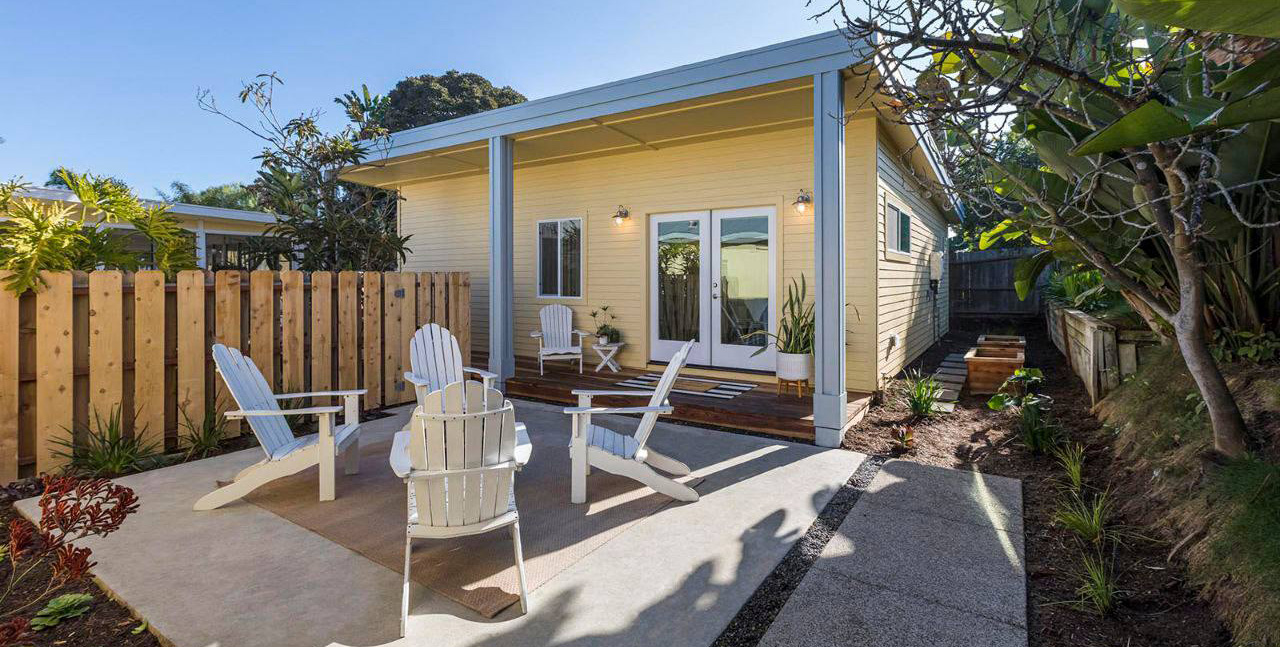Definition:
An Accessory Dwelling Unit (ADU), is a smaller secondary living space located on a property and separate from the main residential structure.
ADUs are gaining popularity in California, especially in Los Angeles County as they offer homeowners the chance to increase their property’s housing density and generate rental income.
It’s crucial to seek the assistance of a knowledgeable contractor to build your ADU and guarantee they comply with all local regulations and building codes.
What Are The Different Types of ADUs?
ADUs come in different shapes and sizes, each with their own set of requirements. Lets take a look at the different types of ADUS for both Multi-family and Single-family lots.
Single-Family ADU Types

Detached ADU
A detached ADU is a standalone structure that is not physically attached to the main residential structure. The main advantage of a detached ADU is that it provides additional living space without sacrificing privacy or altering the existing home’s layout.

Attached ADU
Attached ADUs are living units that are physically connected to the main residential structure on a property. For single-family lots, attached ADUs provide an opportunity to create additional living space without taking up any yard space.

Garage Conversion to ADU
A garage conversion to ADU involves converting an existing garage space into a living unit with a separate entrance. This type of ADU is particularly popular for single-family properties, as it allows homeowners to repurpose unused garage space into valuable living space, without having to build a completely new structure.

ADU over Carport/Garage
An ADU over carport/garage is a living unit that is built on top of an existing carport structure. This type of ADU is not as common for single-family properties due to the high cost of reinforcing the existing structure.

Interior Conversion to ADU
Interior conversions to ADUs involve converting existing interior space within a main residential structure. This type of ADU is particularly useful for single-family properties that may have underutilized interior space such as storage.

(JADU) Junior ADU
Junior ADUs (JADUs) are a type of ADU that is no more than 500 square feet in size and must be located within the existing walls of a single-family home. JADUs are designed to be smaller in size and more affordable than traditional ADUs.
Multi-Family ADU Types

Detached ADU
A detached ADU is a standalone structure that is not physically attached to the main residential structure. Detached ADUs are also easier to rent out since they offer complete privacy for tenants. Multi-family lots can in most cases construct two detached ADUs.

Attached ADU
Attached ADUs are living units that are physically connected to the main residential structure on a property. For multi-family lots, can provide a way to add extra units without having to build an entirely new structure. attached ADUs provide a sense of community for the occupants, as they share a common wall with the main residence.

Storage/Parking to ADU
Converting underutilized areas such as existing storage or open parking can greatly increase potential property income and value. These ADUs comply with soft-story requirements. Meaning you can turn your retrofit project for areas such as tuck-under parking into assets!

ADU over Carport
An ADU over carport is a living unit that is built on top of an existing carport structure. This type of ADU is particularly popular for multifamily properties, as it allows property owners to create additional living space while maintaining covered parking a valuable amenity in areas such as Los Angeles.






